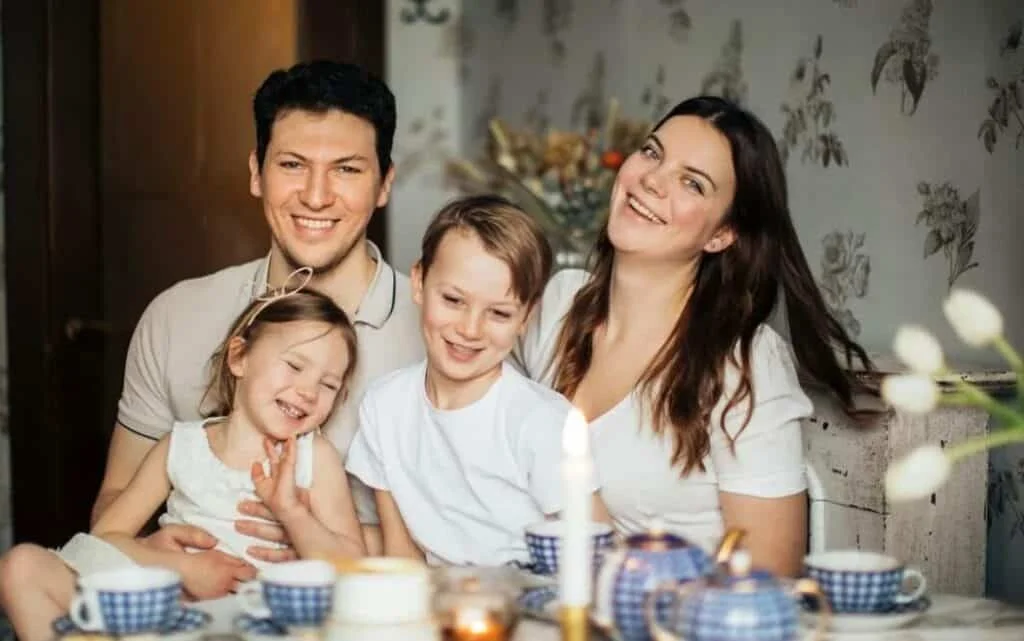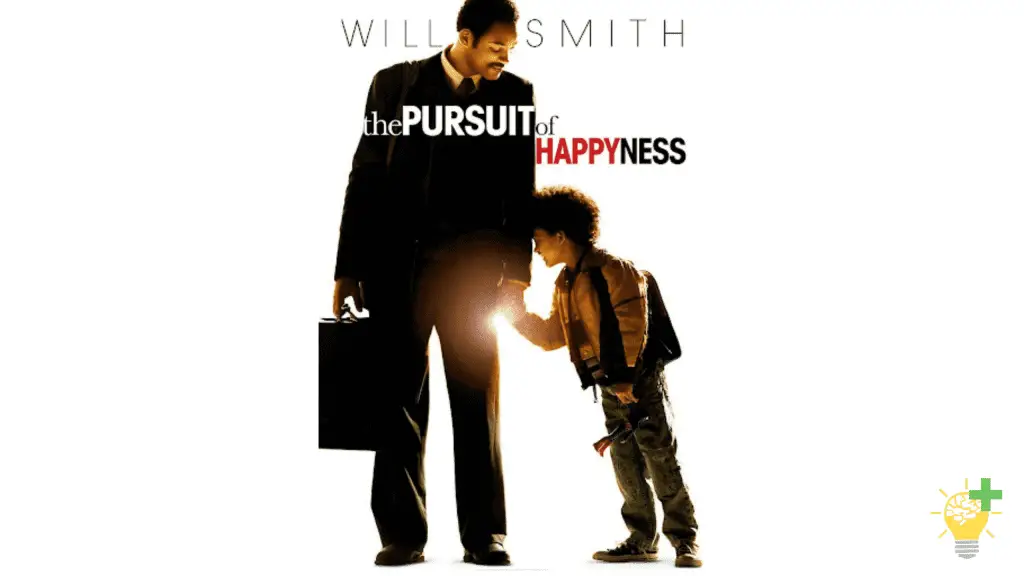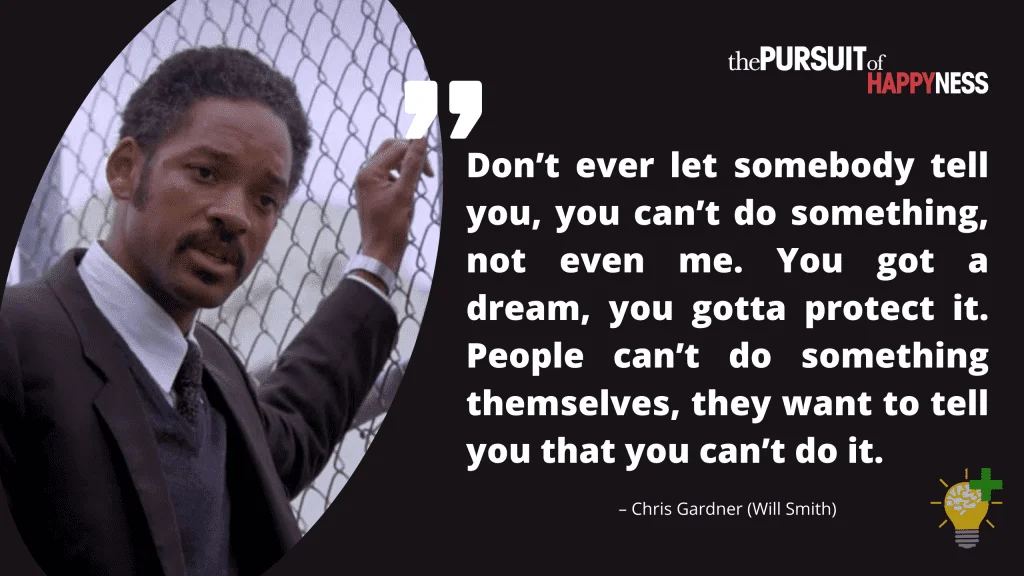We all have the fundamental right to seek joy and daily pleasures that make life exciting and fun. This is the pursuit of happiness, which contributes to our overall well-being.
But what if you want something more ― something that lasts longer and is somewhat more permanent? What if you want to experience more than a fleeting emotion? Perhaps you’re on a quest to find fulfillment, peace, and a long-lasting state of being rather than a temporary emotional state.
If that’s the case, I urge you to stick around as we explore and compare happiness vs contentment.
Indeed, this is a comparison article. But it is not meant to devalue the importance of any of these attitudes or qualities.
Instead, I’ve written this post to help you live your best life by focusing more of your energy on qualities that produce long-lasting results and less energy on momentary experiences.
Let’s get started!
What Is Happiness?

To quote from Encyclopedia Britannica, the oldest English encyclopedia, happiness is:
“A state of emotional well-being that a person experiences either in a narrow sense, when good things happen in a specific moment, or more broadly, as a positive evaluation of one’s life and accomplishments overall — that is, subjective well-being.”
Here’s what all of that means: Happiness is a state where joy, pleasure, excitement, and other positive emotions are experienced momentarily.
We’ve all experienced happy moments, no matter how unhappy we think our lives are. Think back to when you bought your first car or house. Remember when you got that long-awaited promotion at work?
How about when you first met your significant other, and time seemed to stop, and your heart skipped a few beats? Or when your child graduated from college?
All these positive events brought about happiness. That’s another way of saying happiness is solely based on your perception of circumstances. You experience happiness if you think an event is positive. On the other hand, you feel sad if you perceive an outcome as negative.
And although happiness can be very intense (which is a good thing), it doesn’t last.
For example, you can be extremely happy when you buy a car yet be depressed and discouraged the next moment if the vehicle is somehow damaged beyond repair.
Although we all want to be happy, focusing solely and chasing after what we think will make us happy often leads to unhappiness, disappointments, frustration, and anxiety. In fact, it can cause unnecessary comparison, leading to competition, jealousy, and envy.
What Is Contentment?

In simple terms, contentment is genuine acceptance of how things currently are, whether or not the circumstances are less than perfect.
Contentment is being at peace with your past and present situation and being optimistic about the future. It is a deep sense of satisfaction and gratitude for what you have and your station in life despite life’s dramas, challenges, and heartbreaks.
When you are content, you acknowledge that happiness is important, but being happy all the time is shadow chasing ― an exercise in futility.
Don’t take this the wrong way, though.
Reaching for the things that bring happiness isn’t wrong. However, trying to stay in a state of continuous euphoria is impractical and not without some unpleasant consequences if you force it (more on this in a bit).
Being content means shifting your focus from what you currently don’t have and not letting unhealthy competition, envy, or other negative thoughts and emotions drive you. You live in the moment, enjoying life as it is while hoping (and working) for better things in the future.
Want to learn about being content with what you have? Check out this article.
Major Differences Between Happiness and Contentment

Many people use happiness and contentment interchangeably, but these two don’t mean the same thing. Understanding their major differences is a step in the right direction if you want to live a more fulfilling life.
Here are three important differences between happiness and contentment.
1. The Nature of Happiness vs Contentment
Happiness is a temporary, subjective emotional state influenced by external factors. Achieving this emotional state is often a response to various external variables.
For example, reaching a personal goal, being in the company of a romantic partner, getting a promotion at work, and buying a new car or house, are all external factors that can bring about moments of pleasure, excitement, or other positive emotions.
As you probably already figured, these variables vary widely between individuals, which explains why happiness is considered highly subjective.
Conversely, contentment is a way of life, not just a spike in positive emotion. It is a continuous and sustainable attitude that reflects your personal values and who you are.
Contentment determines how you show up in life to a large extent. If you are content, you reach for what you want without unnecessary competition, comparison, and strife. You are happy when things work out, but don’t beat yourself up or blame others when outcomes aren’t favorable.
2. The Duration of Happiness vs Contentment
Happiness is a fleeting emotion – a shallow emotional spike that only lasts for a while. No matter how excited and happy you are, the emotion can’t be sustained for too long.
Joy, pride, interest, laughter, and other positive emotions associated with happiness are great, but they tend to fade as quickly as they come.
On the other hand, contentment is a long-lasting attitude hallmarked by gratitude, peacefulness, and a deep sense of satisfaction.
If you are content, you can weather the roughest and toughest storms of life without losing your inner peace, personal values, and sense of self-worth.
3. The Basis of Happiness vs Contentment
The basis of happiness is external circumstances. Solely living your life focused on pursuing happiness means you only experience happy moments when things turn out as you expect. You will experience unhappiness, frustration, or sadness if things go south.
Living this way means there is no real and deep sense of inner peace. Instead, you are tossed about by circumstances, and your mood is dictated by the things happening around you.
While happiness is important, you wouldn’t want just about every external situation to determine how you feel, right?
Contentment doesn’t depend on anything external because it is a state of being. Being content means your focus and sense of worth aren’t limited by what you have or don’t have this red hot minute.
With contentment, you get a greater sense of purpose because you see the bigger picture when life throws challenges at you.
This is not the case with happiness, as every obstacle or temporary setback is seen as a negative outcome instead of an opportunity for growth and personal development.
Is Aiming for Happiness Asking For Too Much?

Wouldn’t it be great to experience one happy moment after another throughout your life? That would be the ultimate state of euphoria!
Or is it?
A life of continuous joy, pleasure, excitement and positive thoughts sounds great on paper. But that’s not what you (or anyone else for that matter) truly want.
To be clear, there is nothing wrong with reaching for happiness, even though it is short-lived. Seek what makes you happy whenever possible. And when you find it, milk all the joy you can at that moment.
However, living in a constant state of happiness is impossible, no matter how well you’ve mastered positive thinking and living. Striving for a life of continuous happiness is aiming too high and setting yourself up for frustration.
Here’s why.
The ups and downs of life are what make it interesting. Life will be one huge boring experience without challenges or difficulties. In fact, you won’t know happiness if there weren’t moments of unhappiness.
To answer the question: No, aiming for happiness isn’t asking too much, but no one can live a fulfilling life if all they ever experience is a constant state of happiness.
Is Contentment the Same as Settling for Less?

So far, we’ve compared happiness vs contentment and seen why trying to live a life of continuous happiness isn’t very healthy.
Now, should you “lower your expectations” and “settle” for contentment?
This seems to be a logical question since happiness is mostly short-lived, and pursuing it can lead to frustration (especially if you make it your primary focus).
Here’s a one-sentence answer:
Contentment is not settling or lowering your expectations!
No doubt, in a world where everyone seems to be constantly chasing one goal or the other, adopting a relaxed approach to life may seem like settling for mediocrity.
But that’s not what true contentment is about.
Contentment is not synonymous with stagnation, laziness, or giving up on your dreams. You can be contented and have a zest for life! However, you understand the fleeting nature of happiness, so you don’t measure your satisfaction level and life’s quality by things that bring temporary happiness.
Here’s how I see contentment: It is feeling satisfied with whatever you have but eager for more! This allows you to go after your desires, goals, and dreams from a place of confidence and certainty rather than fear, worry, or anxiety.
How does contentment make you confident? You know that you are worthy and valuable, regardless of the outcome of your pursuits.
On the other hand, a pure focus on happiness means you can only be happy when things work out as you expect. And as you rightly figured, this is a sure path to a life of constant frustration!
I mentioned in my intro that this happiness vs contentment comparison isn’t to reduce the value of either attitude. Instead, my goal is to help bring balance to your life.
In keeping with that, here’s what I recommend. Set goals and smash them. Pursue your dreams and aspirations as best as you can.
But don’t get lost in those pursuits.
Realize that your true worth isn’t dependent on achieving goals. Remember, who you become in the goal-chasing process is more important than whatever you were trying to achieve. This is why your intention in going after a goal is more important than the goal itself.
Most importantly, remember to be grateful for how your life is unfolding. In other words, be contented whether or not you think your life is perfect.
This is what true contentment is about!
By the way, I strongly recommend reading this post if you want to learn how to never settle for less.
Is There a Connection Between Happiness and Contentment?
Yes!
Happiness and contentment are not mutually exclusive. You can experience happiness and be content at the same time.
This is exactly my aim for this comparison post.
Being satisfied or content doesn’t automatically translate to seeking a life devoid of momentary pleasures. You can have the best of both worlds, you know! Happiness can spice up an already satisfying life by adding a little bit of spark here and there.
Here’s something else to remember.
Just because you are happy doesn’t mean you are content. In other words, you can experience frequent moments of happiness, even though you live a generally dissatisfied life. This lifestyle is not worth living.
Bottom line: Being satisfied with your current life and working toward improvement brings about a life of meaning and fulfillment. This is what you should seek in life.
Key Takeaways
In comparing happiness vs contentment, the following important takeaways stand out:
Happiness is an emotional state characterized by fleeting moments of pleasure, joy, and other positive feelings. While this is generally good, happiness doesn’t guarantee a satisfying life.
It is unrealistic to experience happiness continuously and trying to force it will result in frustration.
A more fulfilling approach to life is adopting an attitude of contentment. Being content with what you have does not preclude improvement.
On the contrary, contentment allows you to reach for what you truly want from a place of quiet confidence and peace of mind, regardless of the outcome.




